In this article
The Cavalier King Charles Spaniel (also known as CKCS) is a sweet, affectionate dog that makes an excellent pet. These small spaniels are playful and active, making them great companions for first-time dog owners or busy individuals who want to get out and exercise more.
But like any breed, the CKCS has its own set of pros and cons, depending on your lifestyle and expectations. So, before you adopt one, you should understand what owning this type of spaniel entails. This guide will walk you through the advantages and potential challenges of this breed before you make the decision to bring one home for your family.

The Pros of Cavalier King Charles Spaniels
1. Great for Many Purposes
CKCS are beautiful dogs with balanced and affectionate personalities. They not only make great family pets and are great with kids, but they also make excellent therapy dogs. If you’re looking for a relaxed lap dog for those evenings and/or one that doesn’t require a lot of daily activity, consider this breed.
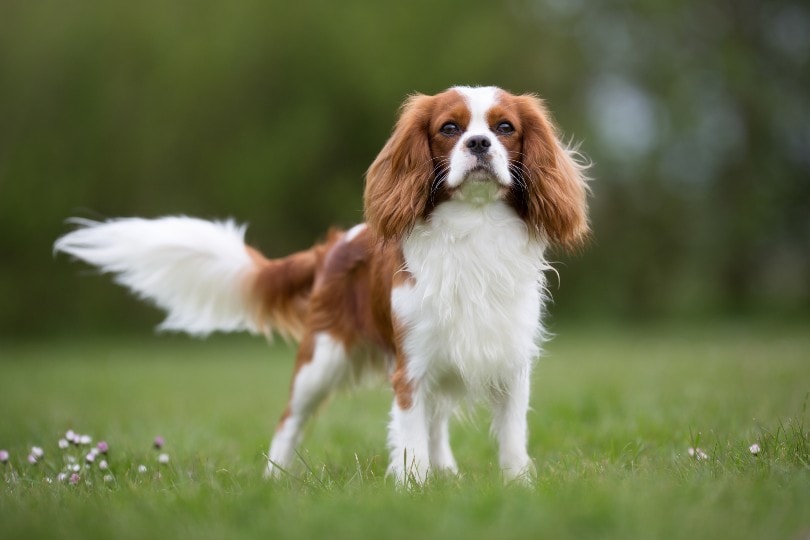
2. Easy to Groom
These dogs are also easy to groom. They are mild to moderate shedders, and their coat can be kept in good condition with weekly grooming. This is a plus if your dog doesn’t shed much because you won’t have to clean up much hair. Talk about easy maintenance!
3. Easy to Train
CKCS are super intelligent, which makes them easy to train. They’re quick thinkers and are always eager to please their owners. This makes them a great dog for first-time owners or owners who have more than one dog to take care of.
- You may be interested in: How to Train a Cavalier King Charles Spaniel: 9 Expert Tips
4. Moderate Exercise Needs
Cavalier King Charles Spaniels need at least 30-60 minutes of physical activity each day to stay healthy and happy. They love long walks and play sessions and will gladly join you on outdoor adventures. That said, they’re quite adaptable and can handle a flexible routine, as long as they get enough daily movement and a chance to stretch their legs more on weekends.
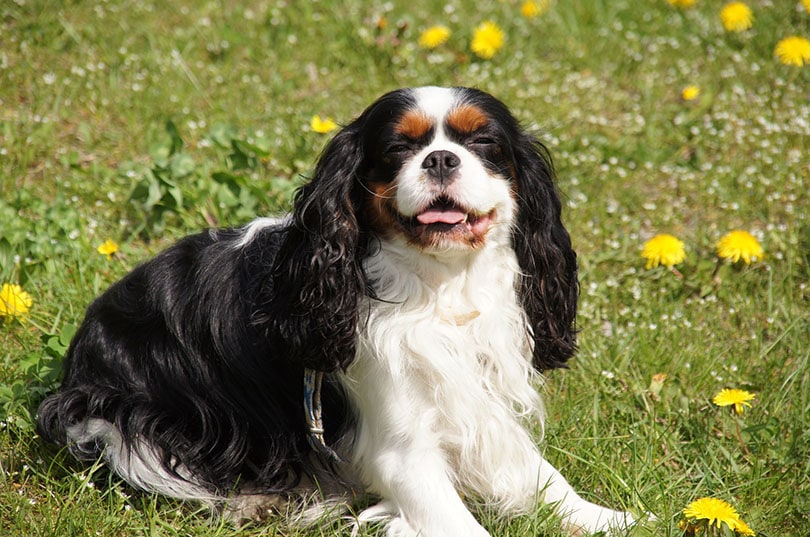
5. Easy-Going Personality
CKCS aren’t typically or overly aggressive and generally have a laidback personality, something that makes them popular with older owners. They’re affectionate pets and make for the perfect lap dog. They’re also good for low-mobility owners.

The Cons of Cavalier King Charles Spaniels
1. Higher Risk of Heatstroke
The Cavalier King Charles Spaniel is considered a brachycephalic (short-nosed) breed. This means their head and airway structure can make it harder for them to cool down efficiently through panting, unlike dogs with longer noses. As a result, they may be more prone to heat-related issues, especially in hot or humid conditions.
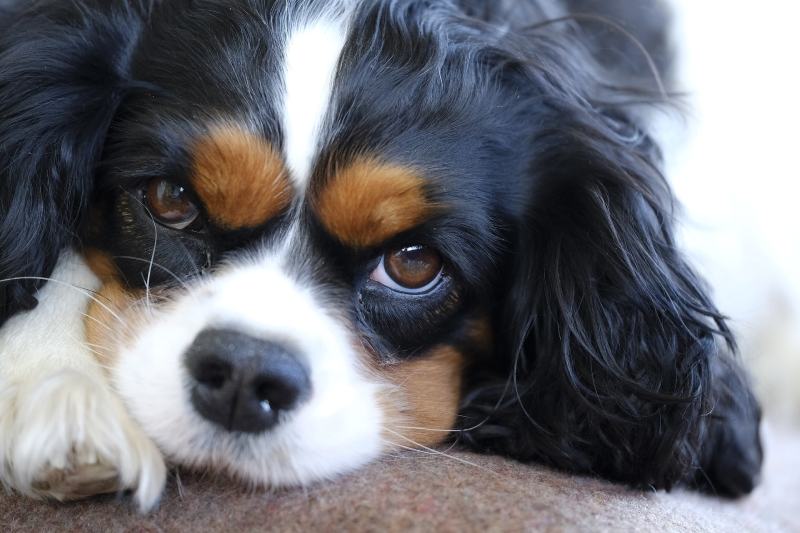
2. Prone to Syringomyelia
Cavalier King Charles Spaniels are unfortunately prone to a condition called Syringomyelia, which causes abnormal pockets of fluid to build up in the spinal cord, typically in the neck. Caused by a congenital malformation of the skull, the common signs of this condition include pain, repeated scratching, or rubbing at the neck.
3. Cardiac Disease is Common
Mitral Valve Disease, a condition where the valve between the upper and lower chambers in the heart’s left side begins to leak, is also common in Cavalier King Charles Spaniels. Generally spotted as a heart murmur or abnormal heart sound, this condition can progress to heart failure, though it is generally manageable with medication.
- You may also be interested in: 6 Cavalier King Charles Spaniel Health Issues to Watch For

Should You Adopt a Cavalier King Charles Spaniel?
Cavaliers make great pets for many different types of people. If you’re interested in adopting a CKCS, there are a few things you should consider first.
Cavaliers have moderate exercise needs, but still need around an hour of daily activity, whether through walks, playtime, or outdoor adventures. If you live in a hot or humid climate, you’ll need to adjust your routine to avoid overheating. Early mornings or late evenings are ideal for walks. They are prone to certain health problems, so regular vet checkups are essential to monitor their health.
Cavaliers are known for their close bond with their humans and often prefer to sleep near (or in bed with) their favorite people. If you or your partner prefer pets to sleep elsewhere, this may be something to consider.
If you’re prepared to meet their needs—emotionally, physically, and medically—a CKCS can bring a great deal of love, joy, and companionship into your life.


How to Find a Reputable Cavalier King Charles Spaniel Breeder
Many people choose to buy Cavalier King Charles Spaniels from reputable breeders. If you prefer, you can look for a CKCS at your local rescue organization or shelter. You can also look for a breed rescue organization if you decide to adopt a dog that isn’t a CKCS.
Here are a few things to keep in mind when looking for a rescue organization or shelter:
- Reputable rescue organizations and shelters screen potential owners. This means you’ll likely have to provide documentation proving that you’re a suitable owner before the organization will let you adopt a dog.
- They are careful about where their dogs go. They usually only adopt dogs to people in the same state. If you want to adopt a dog from a rescue organization in another state, you’ll have to make arrangements to fly or drive the dog home with you.
- Reputable rescue shelters are happy to answer your questions. If they don’t respond to your emails, phone calls, or letters, you may want to find another organization that has more professional staff and follow-up procedures.

The Top 8 Most Fun Facts About Cavalier King Charles Spaniels
- This breed was developed by crossing other dogs to create a spaniel that would be small enough for ladies to carry in their laps.
- The Cavalier King Charles Spaniel is the smallest of the spaniel breeds. Spaniels were bred for hunting different types of game birds, such as pheasants, quail, and partridges.
- Small spaniel breeds like the Cavalier King Charles Spaniel are ideal for hunting game that is closer to the ground, such as rabbits.
- The Cavalier King Charles Spaniel was named after the king of England during the 17th century, King Charles II.
- The breed became popular in England during the 17th and 18th centuries, actually becoming the most popular dog in England at one time.
- To ensure that the breed would stay small, the breeders only paired small male dogs with smaller female dogs.
- Focused breeding programs in England worked and produced unique traits in the breed. These included an undershot jaw, a round head, and eyes that are close together.
- The breeding programs that created the unique traits in these dogs also resulted in a low population, which led to the breed almost becoming extinct after World War II.
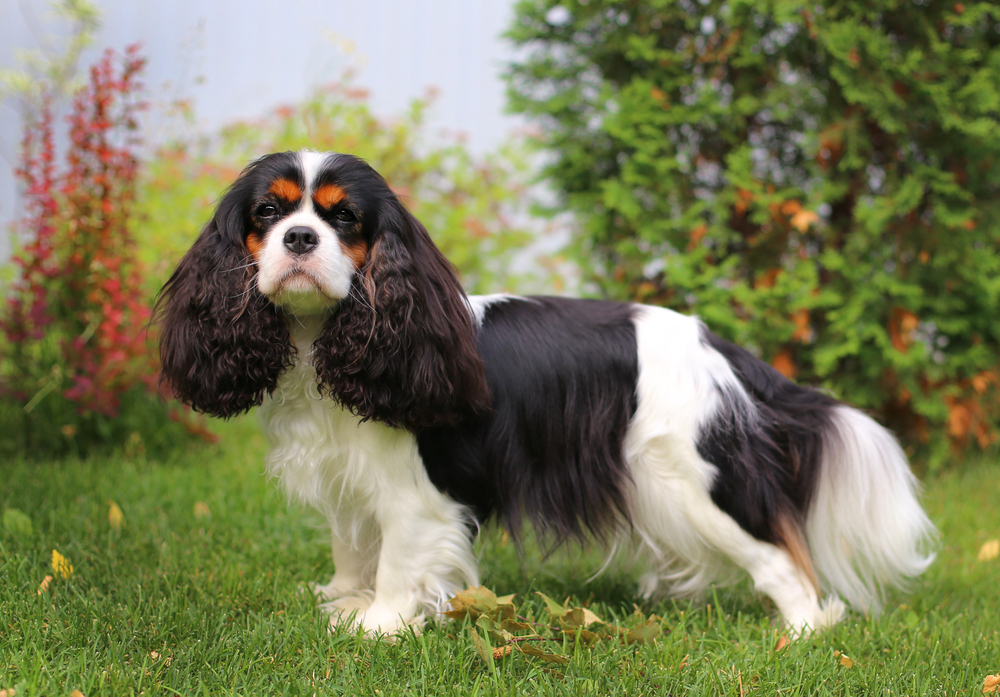

Frequently Asked Questions
As you can see, there’s a lot to consider before adopting a Cavalier King Charles Spaniel, but if you’re interested in adopting a dog, the CKCS is a great choice. Here are a few common frequently asked questions regarding these pups:
Are Cavalier King Charles Spaniels good dogs for children?
Yes! Cavaliers are great dogs for families with children. They adore being around kids and are gentle and affectionate.
How much exercise do Cavalier King Charles Spaniels need?
They need around 30-60 minutes of exercise each day. If you live in a hot or humid climate, it’s best to avoid the hottest parts of the day and take them out for walks in the early morning or later in the evening, when temperatures are cooler.
How much grooming do Cavalier King Charles Spaniels require?
You should brush their teeth every day, brush them approximately once a week, and bathe them as needed.
What is the average lifespan of a Cavalier King Charles Spaniel?
They live an average of 12 to 16 years.

Conclusion
The Cavalier King Charles spaniel is a versatile breed that excels in many settings, including at home as a family pet, companion, and therapy dog. This breed is intelligent and makes a great pet for anyone who wants an energetic, highly social, and fairly active dog.
They can thrive on a routine schedule but also enjoy a more laidback approach. While they can do well as the only dog in the household, many enjoy the companionship of another canine. They are also known for being good with cats as long as they get the right socialization. Another consideration is that they don’t tolerate extreme temperatures well—especially heat or high humidity—and their short snout can make them more prone to respiratory issues.
See also:
- Syringomyelia in Cavalier King Charles Spaniels: Signs, Causes & Care (Vet Answer)
- Do Cavalier King Charles Spaniels Like Water? Facts & Swimming Tips
- Fascinating Cavalier King Charles Spaniel Facts
Featured Image Credit: Svetlanistaya, Shutterstock

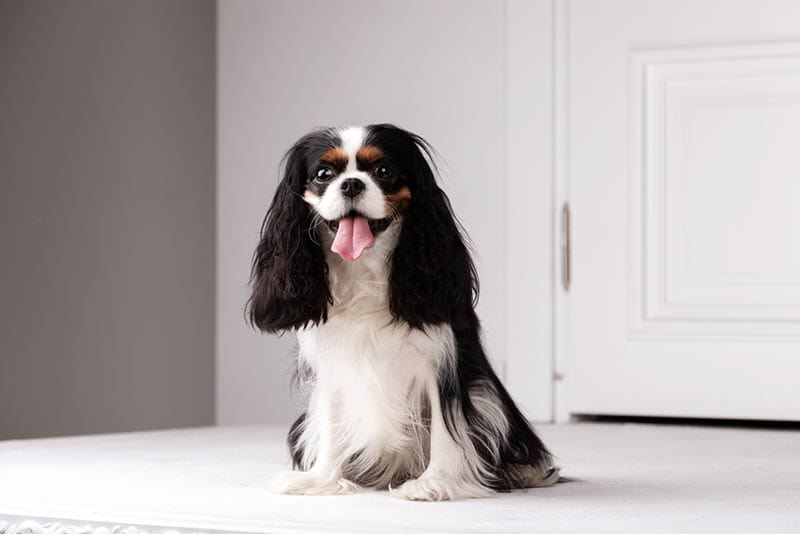


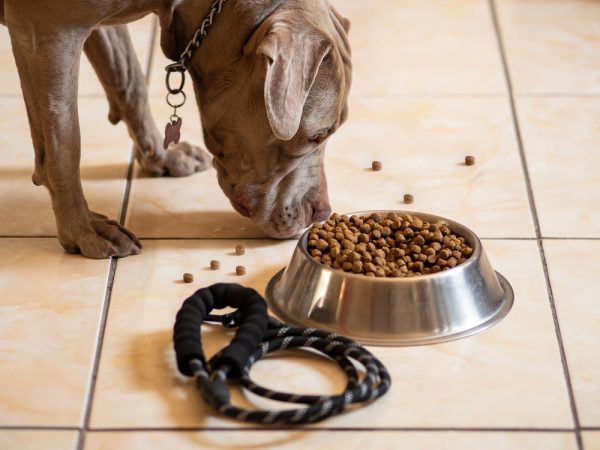


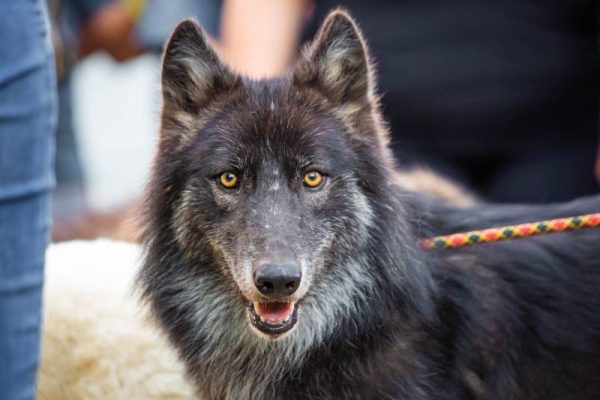
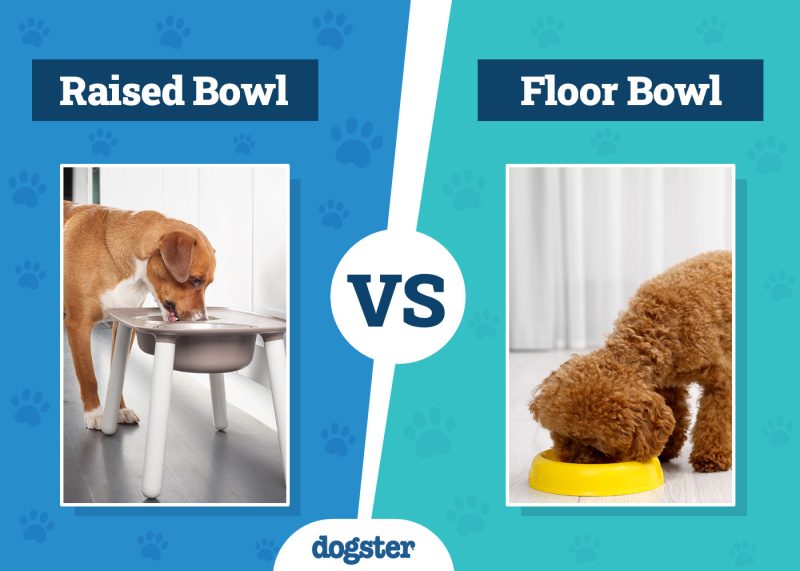

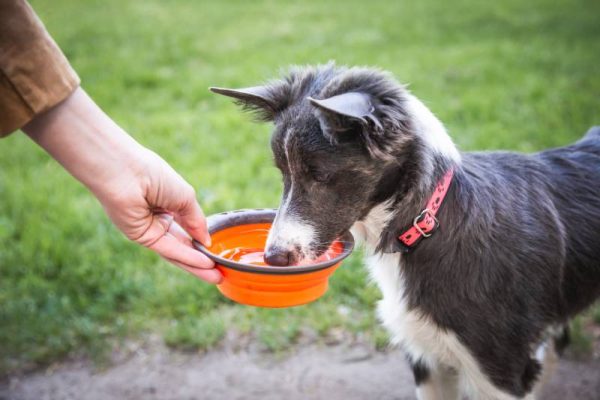
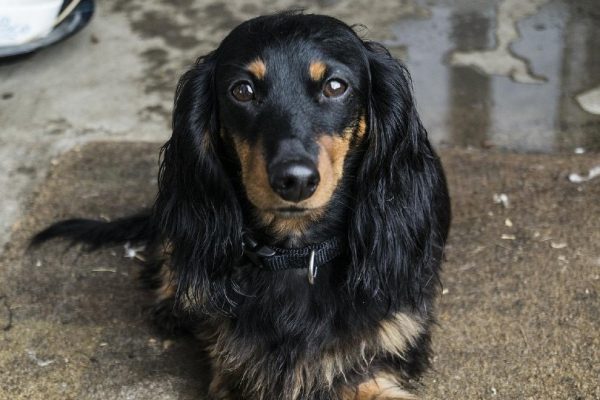

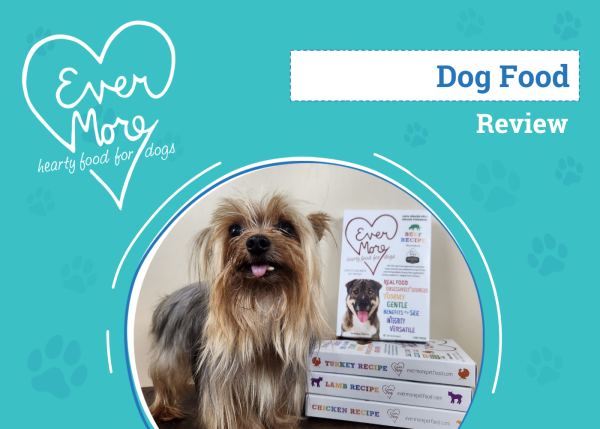




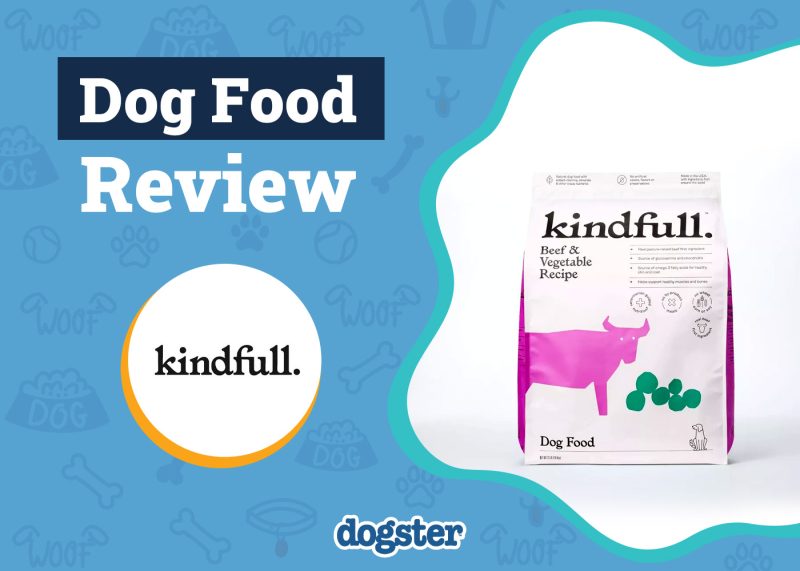
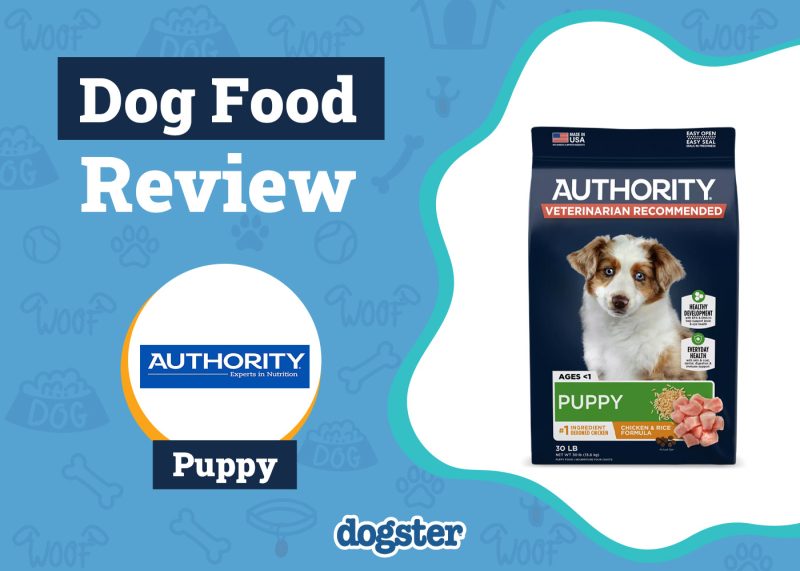

10 Responses
Can you suggest a breeder that has petite Cavalier King Charles? I would like to have one that would be the correct size for flight travel. My last Cavalier was too big to take with me on trips to visit family.
Hello Jana,
Thank you for your message. Unfortunately, we are not in touch with any dog breeders, so we cannot recommend specific breeders. We recommend looking into rescue organizations or shelters first, as there are many wonderful dogs of all sizes looking for homes.
If you choose to search for a breeder on your own, please do so responsibly. You can try to search online for a reputable breeder who specializes in smaller-than-average dogs that fall within airline travel guidelines.
Hope this helps.
I am in an apartment building that allows pets up to 20 lbs. Will a king Charles qualify? They look adorable!
Kurt Snyder
Hello Kurt,
thank you for your message and sorry for a bit of a late reply. Cavalier King Charles Spaniel's usually grow up to 18 pounds of weight, so they should qualify for your apartment building rules. Those dogs are indeed adorable and it is a great idea to adopt one!
What is the chest size of a 10 week old. So I can buy a harness for her
Hello Maddline,
thank you for your question. It is impossible to tell the size of your dog's chest just from their age. Every dog is slightly different and needs to be measured. We have a great article about this, so don't hesitate to read it: https://www.dogster.com/dog-health-care/how-to-measure-your-dog-for-a-harness
Hope this helps!
My room mate has a king cavalier that just recently either hurt his back hips or something. please help. she can't afford a vet and my boyfriend and I are carrying him in and out to go potty. although most of it iis on him and me. . i don't know how to help her.as I in a budget and she his disabled room a back surgery herself.
thank you
Darlene F
Hello Darlene,
thank you for your message, although I am very sorry to hear about the issues with your Cavalier King Charles Spaniel. If you can't visit the veterinarian, we can suggest you booking an online video-call appointment with one of our veterinarians at www.PangoVet.com. 20-minute call costs just $19.99 and our veterinarian will gladly consult your dog's condition and let you know what you can do for them at home, or what could be the alternatives.
Hope this helps.
Thank you. Very helpful. I’ve had small poodles for decades and recently bought a Cavapoo. She seems relatively low energy compared to my Poodles; now I understand why. She loves cold weather but warmer weather not so much. Thanks to you I’ll watch her more carefully as spring turns to summer.
Thanks Judith—we're glad you liked it. Congratulations on your new Cavapoo, how exciting! It sounds like she is in good hands with all of your experience. 🙂